Business Line of Credit
How Do You Qualify for Business Equipment Financing?
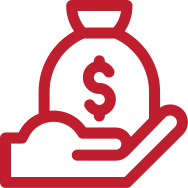
1+ Year in Business
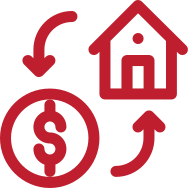
Assets or Collateral
What Is a Business Line of Credit?
No matter your industry, we can help you secure the best deals on business equipment financing for virtually every type of equipment. We work with a wide range of business sectors, including medical, software, manufacturing, commerce, food services, automotive, and more.
Whether you’re aiming to expand your business, introduce new products or services, or gain a competitive edge, our equipment financing solutions can support your goals. Our streamlined process ensures you can obtain the necessary capital in as little as 24 hours. Our Business Financing Advisors are here to provide all the information you need and answer any questions you may have.
All our business equipment financing options are fully customizable to suit your specific business needs.
How Does Equipment Financing Work?
Instead of paying the full cost of equipment upfront, a business can opt for equipment financing, where a lender purchases the equipment on their behalf. The business then repays the total cost, plus interest, through regular installments to the lender and maintains ownership of the equipment afterward.
Here’s how the process works:
- Shopping for Lenders: The borrower compares various lenders, finds those that align with their goals, and selects the best offer.
- Lender Pays Vendor: The chosen lender sends payment to the vendor for the borrower’s selected equipment.
- Equipment Delivery: The vendor provides the borrower with the equipment.
- Repayment: The borrower pays back the principal and interest to the lender in regular installments as outlined in their contract.
- Ownership: At the end of the repayment term, the borrower keeps the equipment. This is a key difference between equipment financing and an equipment lease, as a lease agreement typically requires the borrower to return the equipment at the end of the term.
Alternative financing options include securing a traditional business loan to make the purchase. However, standard equipment financing usually offers better terms and allows the purchased asset to act as collateral for the financing.
How Does a Business Line of Credit Work?
Business lines of credit function like credit cards but are structured to better suit small business owners. They offer tax advantages since you can write off interest on a business credit line, unlike with a personal credit card.
How They Work
Once you qualify for a business line of credit, you’ll receive a total credit limit. You can draw as much or as little as you need from that limit in multiple installments, with no obligation to use the full amount.
You manage this online by logging into an account and transferring funds from your credit line to your business bank account.
As you repay your balance, additional funds become available for use. You only pay interest on the amount you draw, not the full credit limit. However, be aware that some lenders may charge a non-utilization fee if you don’t use the line. Always ask for clear information about any fees before signing an agreement and avoid any agreements without transparent terms.
Choosing the Right Line of Credit
The best business line of credit is one that fits your business and its future goals. Work with a reputable, transparent lender to ensure the financing aligns with your objectives and imposes no restrictions on your growth.
Documentation Needed
- Driver’s license
- Business bank statements (at least one year)
- Business credit score
- Financial statements
- Time in business
- Proof of ownership (K1, Schedule C, EIN, certificate of incorporation, etc.)
- Business tax returns
- Collateral (if secured)
- Cash flow statement
- Business plan
Some lenders may require additional documentation, but the above list includes the most commonly requested items.
How Does a Revolving Line of Credit Work?
Unlike small business loans, revolving lines of credit work by allowing you to continue accessing additional funds as you pay your balance down and require more cash. In other words, it is a type of loan in which the user can borrow up to their credit again once the debt is repaid.
Some business lines of credit are revolving, while others aren’t. When you discuss the terms of your agreement, be sure to ask questions and confirm whether or not your line of credit is revolving. Revolving lines of credit are the fastest and easiest way to access additional cash as your business grows. Once you pay down part of the balance, you can draw more cash without reapplying. It’s simple, fast, and easy, and your working capital won’t be limited to your checking account.
For example, say you qualify for a $100,000 line of credit. You borrow the full $100,000 and use the cash to grow your business. You then pay down $50,000 using the revenue you generate, putting both your balance and credit limit at $50,000. With $50,000 paid down, you now have the option to borrow an additional $50,000. There’s no set end date, either. As long as you keep your credit line active or continue drawing and paying it down, you can utilize a LOC for months or even years. If you’re not actively using it, though, your small business line of credit may expire.
A top business line of credit option is one that has exactly what you need. If you aren’t satisfied with the first offer, don’t worry – there’s always a better deal out there.
Small Business Credit Line Benefits
A business line of credit can be a powerful tool in your back pocket. The flexibility allows you to draw funds whenever you need them and stay one step ahead of the latest challenge in your business – a priceless opportunity for any entrepreneur. Here are a few of the many benefits of leveraging a business line of credit in your operation:
- Fast access to cash
- Only pay interest on what you draw
- Might not need to offer collateral
- Manage your working capital, short-term projects, and other expenses
- Strengthen your business credit
A business line of credit for new businesses can change the way they grow. With flexible access to capital, you can build out necessary areas of your business without jeopardizing cash flow.
Term loans, SBA loans, and other traditional financing products provide you with a set amount of money that you must repay throughout the term outlined by your lender. If you wind up needing more than you originally anticipated, you’ll have to take out an additional loan on top of your previous financing, which can quickly become difficult to manage.
A business line of credit is a way around this challenge – the structure allows you to draw as much as you need from your total credit line without having to worry about taking out additional financing to afford your growth plans.
Lines of Credit Vs. Small Business Loans
What’s the difference between a line of credit and a small business loan? Both provide your business with the cash you need to grow, but the way these products are structured is different.
When you apply for a small business loan, you receive the full amount you qualify for in one lump sum deposit. A line of credit, on the other hand, offers more flexibility than most loans and cash advances. Instead, you have the option to draw cash in increments and continue drawing more until you reach your credit limit.
Typically, lines of credit have lower interest rates and closing costs, which can make them more cost-effective. Small business loans are the better choice when you’re taking on a huge project with defined expenses. Lines of credit can be better as a flexible backup to cover unexpected costs or as a backup for your bank account.
Choosing a business line of credit over another financing solution could also help you save money on interest. If you were to secure a term loan to meet your needs, you’d have to pay interest on the total borrowed amount, whereas you only pay on what you use with a business line of credit. Plus, making consistent, timely payments on your credit line will work to strengthen your business credit score, which is a priceless opportunity that all entrepreneurs should take advantage of.
How to get a business line of credit? Check that you meet the necessary requirements, then reach out to the experts at National Business Capital to explore the options you qualify for.
Secured Vs. Unsecured Business Line of Credit
A business line of credit can either be secured or unsecured. The difference depends on whether or not your lender requires you to put up collateral.
Secured Lines of Credit:
- Backed by collateral
- Higher credit limits
- Lower interest rates
- Lender can seize the collateralized asset if borrower defaults on payments
Unsecured Lines of Credit:
- No collateral necessary
- Higher interest rates
- Lower credit limits
- Difficult approval process
Some lenders require that borrowers put up collateral, such as real estate, receivables, inventory, equipment, or their home, as a method of protecting themselves from financial loss if the borrower defaults. However, putting up your home as collateral puts both your personal and business lives at risk.
For this reason, it’s usually not a wise choice. Backing your financing with collateral simply gives the lender confidence in the event you default. Years ago, it was difficult for a small business owner to qualify for an unsecured line of credit, especially through traditional lenders.
Through the new world of online lending, small business owners can qualify for multiple unsecured lines of credit options and compare rates. While they don’t require collateral, unsecured options may have slightly higher rates due to the lender’s increased risk.
By putting up collateral and opting for a secured line of credit financing, you may qualify for a higher approval. That being said, you can usually still qualify for a competitive unsecured line of credit based only on your annual sales – even with personal credit challenges.
Business Credit Cards Vs. Business Line of Credit
Fundamentally, credit cards and lines of credit are similar – they give you the ability to handle expenses when you need to.
Both financing products only charge interest on what you use rather than your total credit limit, but the interest is structured differently. A business line of credit is the ideal option for your small business if you’re growing or solving challenges and you need a lower-cost solution.
Usually, only about 3% of your minimum monthly credit card payment goes toward principal. Over time, this can add up to be quite expensive. Lines of credit typically have lower interest rates and better amortization schedules. Overall, this normally adds up to a lower total cost.
Credit cards are primarily transactional, meaning you can only use them to make purchases. It’s possible to borrow cash using a credit card, but this can be expensive. On the other hand, lines of credit give you the ability to instantly draw cash as you cover expenses and manage working capital.
If you’re debating between getting a credit card vs. a business line of credit, you should also consider fees. Some credit cards involve hefty interest rates. In most cases, these costs will outweigh the draw fees you may or may not pay with line of credit financing. If you opt for a business line of credit, you won’t accrue rewards like you would with a credit card.
However, you can maximize the value of both financing options by spending with your credit card to accumulate rewards, then paying the balance down with a line of credit. Using both has its advantages, but you should make sure that you’re choosing the best business line of credit and credit card for your business and where it’s headed by weighing out your options beforehand.
How Can You Use Business Line of Credit Funds?
Lines of credit are intended to be flexible financing options custom-tailored to your needs. You can use them to cover expenses that are weighing your business down or pursue exciting new growth opportunities.
There are no restrictions on how you must spend this money – you can put it toward any expenses. Some of the most common ways that businesses utilize this business financing option include:
- Grow Your Business – Ramp up your business and cover the expenses needed to expand hiring, payroll, take on new jobs, and more.
- Operating Costs – Always have cash on hand for rent, utilities, and other costs required to keep your business going on a day-to-day basis.
- Marketing Campaigns – Drum up new business and take on more customers with additional marketing campaigns in the mix.
- Seasonal Slow Periods – Get the capital you need to keep your business moving during seasonal slow periods.
- Inventory or Supplies – Purchase additional inventory or supplies to capitalize on busy periods and new opportunities.
- Payroll – Keep a reservoir of funding to cover the costs of payroll, especially with slow-paying clients.
Access to a line of credit is like having cash on demand. The second you need cash, you can draw from your line of credit and get things moving.
You may also have to provide a personal guarantee, which is standard with most types of business financing, and is similar to a personal guarantee you already have with your credit cards.
How Could You Benefit from a Business Line of Credit?
What would you do if an opportunity to grow your business came along during your slow season? If you didn’t have the cash flow to take advantage of it, would you let the opportunity pass you by?
Business lines of credit make your opportunities attainable. You can quickly access funds, repay over an extended schedule, and enjoy a favorable interest format that allows you to keep your financing on the sidelines when you need it. Entrepreneurs with lines of credit commonly say that their cash flow and operations are more streamlined now that they have the right capital source in place.
Understanding Interest Rates and Payments for a Business Line of Credit
Most business owners prefer a line of credit over other options because of how interest rates are structured. Rather than charging on the total approval amount, you’ll only pay interest on what you take.
- Using the previous example, let’s say you qualify for a $100,000 business line of credit at a 6% interest rate and draw $50,000. You’d be charged interest only on the principal, which is the $50,000 you drew and not the $100,000 you were approved for.
- The interest would be amortized over 12 months. Typically, in this example, your total interest paid over the course of the term would be $3,000, but the payment structure can vary depending on your lender.
- Your monthly interest payments would be $3,000 divided by 12, which is $250 per month. You can find your expected monthly payments based on a fixed interest rate using our business line of credit calculator.
This structure allows you to keep your line of credit on the sidelines when you need it – without worrying about excessive interest.
Determining your specific interest rate isn’t as straightforward as the payment structure. Rates can depend on a number of factors, including your time in business, credit score, annual revenue, and the lender you’re working with. Still, that doesn’t mean you should settle for an interest rate that doesn’t fit your business.
You should apply with multiple lenders to ensure you’re getting the best deal available. If you apply for a business line of credit online, the application process is much easier than dealing with that of a bank or credit union.
Applying through direct lenders one by one limits the options you could potentially qualify for, while applying at a marketplace leaves the door open to several potential options, ensuring you find the best one.
Applying for a Business Line of Credit
Applying for a line of credit is easy, and simply learning your options won’t affect your credit score. Here’s how it works:
Apply
Fill out our simple 60-second application to begin the process. Then, complete your online application by connecting your bank statements through our bank-grade portal in under 3 minutes.
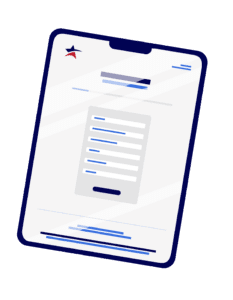
Review
Consider multiple loan options available within our marketplace. Hear your options explained by a knowledgeable Business Financing Advisor, and ask any questions you have.

Get Funded
Select the best option available and get funded in as little as a few hours. Start using your cash to grow your business right away, without restrictions on how you can use the funds.
We educate you on the best options available within our platform to ensure you get the best line of credit available.

Lowest Rates, Longest Terms, & Highest Amounts

Funding Amount
Up to $100MM
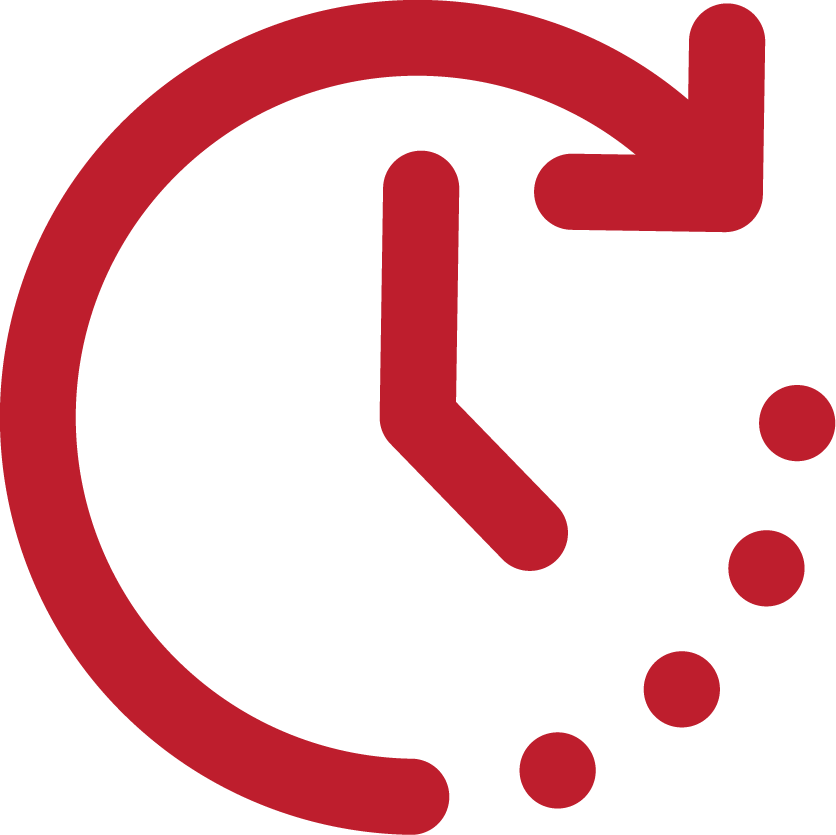
Repayment
Up to 25 years
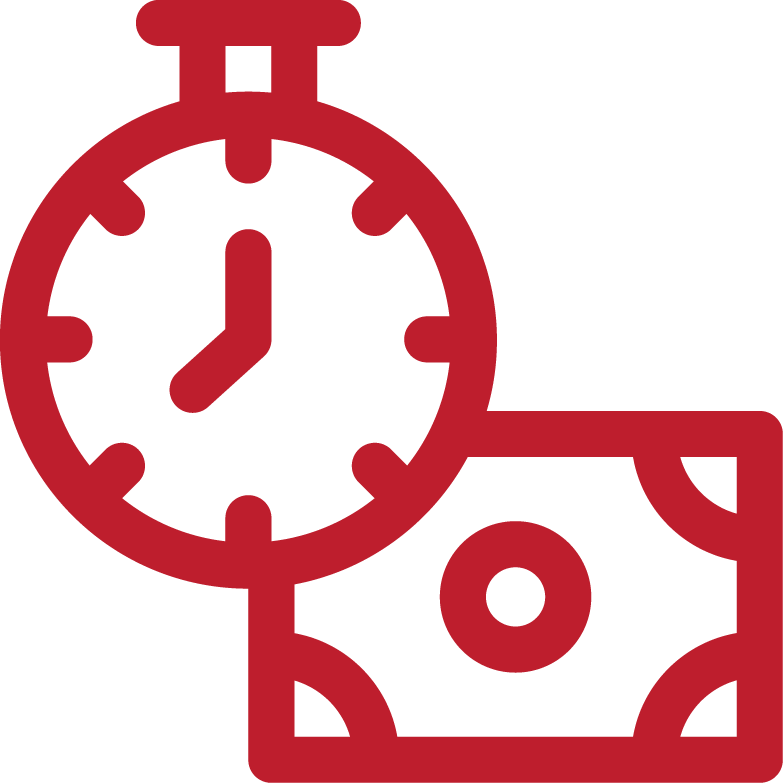
Time to Fund
1 to 7 days
How It Works!
The funding you require to achieve your full potential is
just a few clicks away.
Complete our simplified application process in minutes and securely upload your business documents with no risk involved.
Review and compare your options with guidance from our experienced team, ensuring you choose the best fit for your unique situation.
Armed with your funds, you can confidently seize opportunities and overcome challenges.

Questions to Ask Before Applying for a Business Line of Credit
It’s relatively straightforward to secure business equipment financing, often easier than obtaining other types of loans. To qualify, you typically need a FICO score of at least 1+ year of business history and annual revenue of at least $500,000.
With business equipment financing, the equipment you’re purchasing serves as collateral for the loan, providing lenders with added security and improving your chances of approval.
At National, we offer business equipment financing options tailored to various business needs. Our approval process is streamlined compared to traditional banks, with a fast and simple online application. You can upload your documents quickly through our online portal, minimizing paperwork and hassle. Our goal is to process applications in about a minute, with funding available in as little as 3 days or less.
When financing used equipment, the typical repayment terms range from 1 to 5 years. The choice of repayment term is crucial as it dictates both the duration of your debt and the total cost of financing. Here’s how it generally works:
Longer-term Loans: These usually span over several years, resulting in lower monthly payments. However, they may accrue higher overall interest costs compared to shorter-term loans.
Shorter-term Loans: These involve higher monthly payments but result in less time spent in debt and lower overall interest fees.
Choosing the right repayment term often depends on your business’s financial capacity and objectives. Many businesses opt for a term that aligns with their ability to manage monthly payments comfortably. It’s advisable to consult with one of our Business Financing Advisors to determine which option best suits your specific circumstances. They can provide guidance tailored to your needs and help you make an informed decision.
It’s definitely possible to secure startup equipment financing even if your credit isn’t perfect. National Business Capital offers solutions that cater to startups and businesses with varying credit profiles. Here’s how we can help:
Flexible Eligibility: While many traditional lenders require a higher credit score, National Business Capital can work with startups and businesses with credit scores below 650.
Business History: Having at least 6 months of business history is typically required, along with a minimum annual revenue of $500,000. This helps demonstrate your business’s viability and ability to repay the loan.
Tailored Solutions: We specialize in filling the gaps left by traditional banks, providing customized financing options that suit your specific needs and financial situation.
Streamlined Process: Our application process is fast and straightforward, designed to minimize paperwork and accelerate funding times, often within 3 days or less.
Whether you’re looking to purchase new or used equipment, our Business Financing Advisors are here to guide you through the process. They can help you explore financing options that align with your business goals and financial capabilities.
Here’s a rewritten version:
Choosing Equipment Financing: Factors to Consider
When seeking equipment financing, it’s crucial to assess your business’s specific needs, understand lender eligibility criteria, and evaluate associated costs. Here are key considerations to guide your decision:
Business Needs: Before committing to equipment financing, evaluate how the equipment will benefit your business. Determine if it will enhance efficiency, increase productivity, or generate revenue. Sometimes, purchasing new equipment may not be the most strategic decision for your business.
Eligibility Requirements: Different lenders have varying eligibility criteria. Typical factors include your business’s creditworthiness, revenue history, and the type of equipment being financed. Be sure to review these requirements to assess your likelihood of securing a loan at competitive rates.
Costs: Equipment financing entails several costs beyond the loan amount:
- Interest Rates: Rates can range widely, typically between 2% to 20%, depending on the lender and your business’s financial health.
- Fees: Look out for application fees, origination fees (around 3% of the loan amount), and potentially other fees that contribute to the overall cost.
- Down Payment: While some lenders may require a down payment (often 15% to 20% of the equipment’s purchase price), others may offer no-down-payment options. This varies by lender and affects upfront costs.
Understanding these factors will help you choose the most suitable equipment financing option that aligns with your business goals and financial capabilities.
Interest rates for equipment financing can vary significantly, typically ranging from 7% to over 50%. These rates depend on factors such as the lender’s terms, your business’s financial profile, and the economic environment at the time of the transaction. Equipment financing rates are akin to those of secured loans because the equipment being purchased acts as collateral for the loan. Thus, the interest rate you secure will be influenced by how well your business meets the lender’s risk criteria and prevailing market conditions.
Equipment loans are generally longer term. Repayment ranges from 3 to 5 years on average, but some lenders offer prepayment discounts, which allow you to shorten your repayment schedule considerably.
Secure the Best Business Line of Credit in 2024
-
Paperwork
-
Application
-
Number of Lenders
-
Service Level
-
Approval Process
-
Speed to Funding
-
Collateral Requirements
-
Business Profitability
-
Credit Score
-
Credit Check
-
3 Months Bank Statements
No Tax Returns Required -
One Page – One Minute
DocuSign -
75+
-
Business Advisor
-
Hours/Days
-
Hours/Days
-
Not Necessary
-
Not Necessary
-
No Minimum FICO
-
Soft Pull
-
2-3 Years Tax Return
2-3 Years Financials -
Lengthy
Paper Intensive -
1
-
Processor
-
Weeks/Months
-
Months
-
Always
-
Last 2 Years
-
680+ FICO
-
Hard Pull
-
2-3 Years Tax Return
2-3 Years Financials -
Lengthy
Paper Intensive -
1
-
Processor
-
Weeks/Months
-
Months
-
Always
-
Last 2 Years
-
680+ FICO
-
Hard Pull